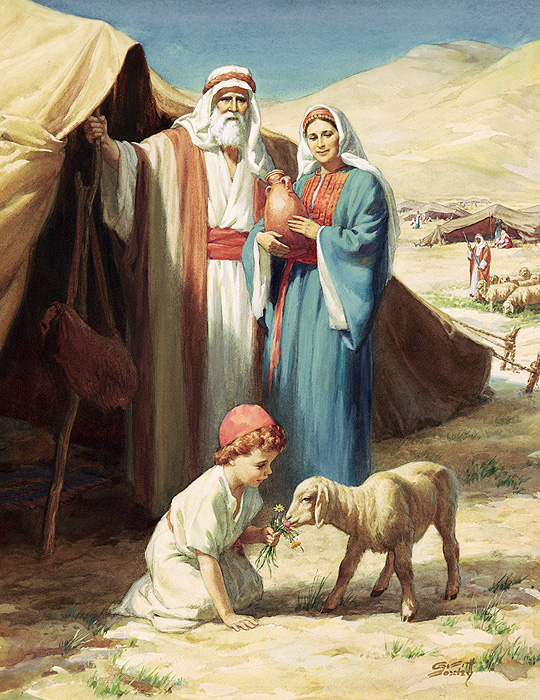Importance of Women in the Bible
Genesis 1: 27 “So God created human beings in His own image! In the image of God He created them; male and female He created them.” This says male and female were created equal! Psalms say that women are noble!
Romans 16:1-2 “I commend to you our sister Phoebe, who is a servant in the church, in Cenchrea. Welcome her to the Lord as one who is worthy of honor among God’s people. Help her in whatever she needs, for she has been helpful to many, and especially to me.” (Paul) Begin our look at the woman in the Bible who had important roles.
Jesus lifted women up from degradation and servitude to the joy of fellowship and service. Jesus had women travel with Him and the Disciples Luke 8:12, showing all people are equal. The women used their own money to help support Jesus’ ministry.
I have assembled a long list of woman in the Bible who God used in important roles. Because of time I will not go into any story in detail- only point the woman, the scripture and a key thought of why they were important to God’s plan. When you hear the list together I believe you will be surprised, as I was, how many and their key role.
- Deborah Judges 4:5- A judge, prophetess and military leader, chosen by God to lead Israel and gave orders from God to Barak, even went with Barak to battle against Sisera.
- Mother of Samson Judges 13:23 –Faith in her encounter with an angel and lead to birth of Samson.
- Naomi Ruth 1:2, 3:1 –Introduces Ruth to Boaz, Mother-in-law of Ruth & strong character that developed plan for Ruth.
- Ruth Ruth 1:4, 14-22, Chapters 2-4 –Remained loyal to Naomi and went to Moab with her. Became mother of Obed, who was father of Jesse and Grandfather of David.
- Hannah Samuel 1:9-18, 24-28 –Prayed to God & faith led to Samuel, who she dedicated to God. Samuel became a great priest for Saul and to David.
- Widow of Zarephath 1 Kings 17:8-24 –Fed Elijah during famine that led to Elijah praying to God for her and then brought her son back to life.
- Shunenmite 2 Kings 4:8-28 –Gave hospitality to Elijah by building a room for Elijah.
- Queen Vashti Esther 1:11-12 – Refused to appear at king Xerxes request that led to Esther becoming Queen.
- Esther Esther 4:15-17 Risked her life to save the Jews from a plot by Haman
- Rahab Joshua 2:8-13, Hebrews 11:31 –Saves Joshua’s two spies by hiding them when they went to investigate Jericho.
- Rachel Genesis 30:22-24 –Took matters into her own hands in a “contest” for children with sister Leah. Led to god answering her prayer and gave her Joseph.
- Rebekah Gen24:18-21 –Went beyond what was expected with her servant spirit by giving water to Eliezer and his camels. Then set up Issac to get Jacob the blessing from Issac.
- Mary Luke 1:26-38 –Strong character and devoted to raising Jesus.
- Elisabeth Luke 1:6, 41-45 Mother of John the Baptist, selected by God because of her faith.
- Anna Luke 2:37 Prophet who talked to all about Jesus. Was in Temple when Simeon met Mary & Joseph.
- The Widow Mark 12:41-44, Luke 21:2-4 –Gave two coins into the treasury, praised by Jesus for her sacrifice.
- Mary & Martha Mark 14:3-9, Luke 10:42, John 11:5 –Mary anoints Jesus with perfume as an act of worship. Martha prepared a big dinner and served Jesus and Disciples. Faith by both brought Jesus to raise Lazarus from the dead.
- Mary Magdalene Mark 16:1, Luke 8;2, John 20:1, 2:11-16 – Maybe the woman who did more for Jesus than any other woman. One of 3 women who purchase spices for Jesus’ body. Was first to see Jesus after His resurrection. Jesus had cast out 7 demons from her. She and other women traveled with Jesus and Disciples and provided financing.
- Pilate’s Wife Matthew 27:19 –Told Pilate to leave Jesus alone as He was innocent.
- Dorcus Acts 9:36 –Also called Tabitha, made clothes for the poor and the disciples. True believer and always doing things for the poor.
- Lydia Acts 16:4 – Merchant of expensive purple (royal material), Became a believer and hosted Paul and Silas in her home. First convert at Philippi and provided great service to Jesus.
- Pricilla Acts 18:26 –Helped Paul in his ministry and witnessed for Jesus.
- Pheobe Romans 16:6 – Mentioned above- a real leader.
- Lois & Eunice 2 Timothy 1:5 –Mother and grandmother of Timothy, Had strong faith and shared it often without fear.
- Philippians Women Philippians 4:3 –Two women at Philippians church who were helping Paul tell others the Good News- despite their dispute.
There were other women who played a significant role in the Bible- but these listed were probably the ones who stood out.
FOR GREAT BIBLE THOUGHTS AND VICTORIOUS LIVING Copy and Paste:
http://7a712f1s83tu0scrs5yjv6vl6w.hop.clickbank.net/?tid=VICTORIOUSCHRISTIAN
http://f5548i1vh9vr8v1hw1rseuap3f.hop.clickbank.net/?tid=TEACHTHEBIBLE






